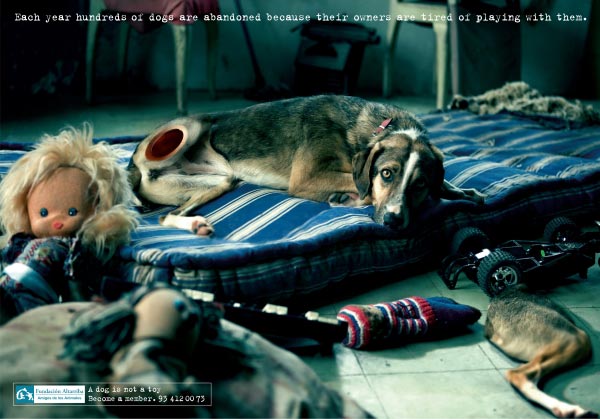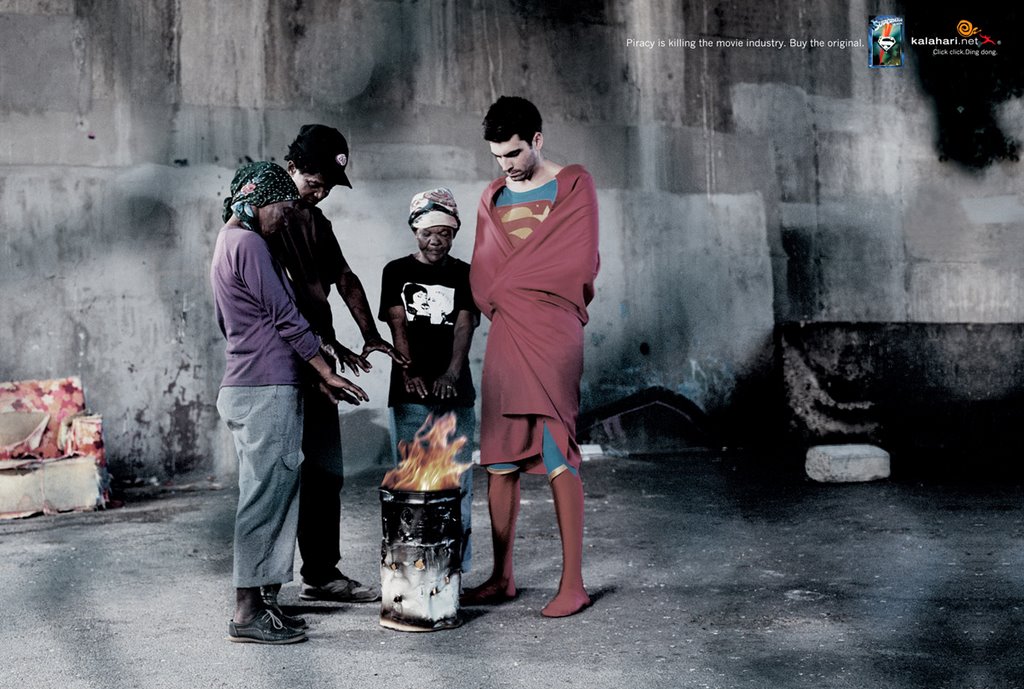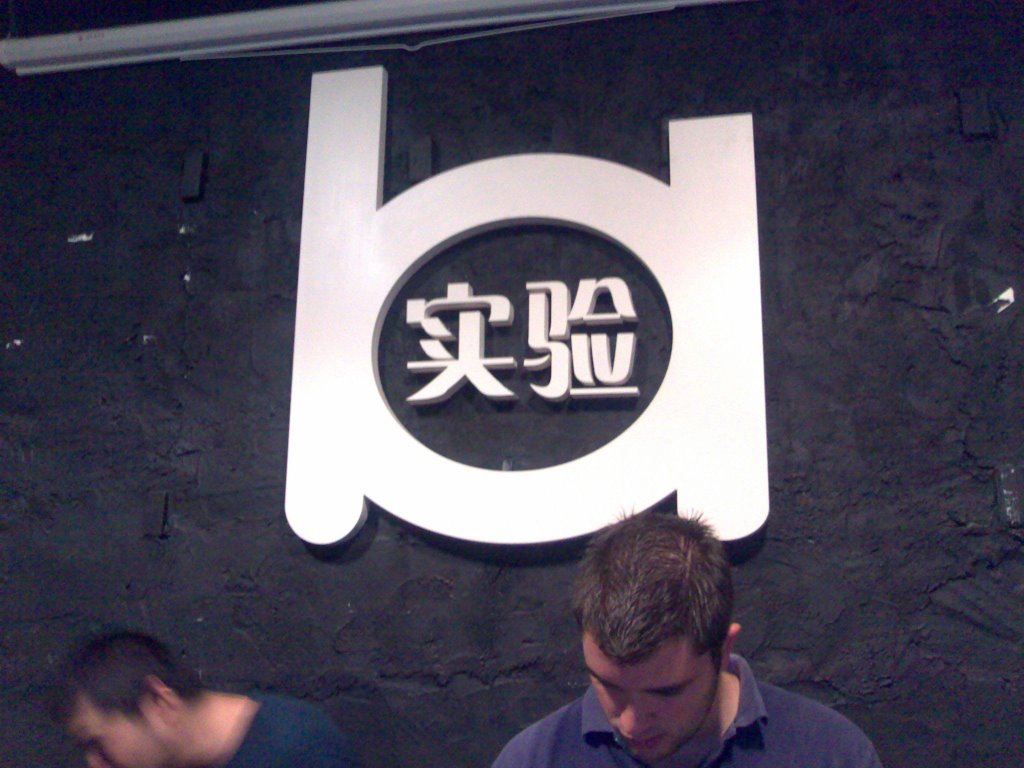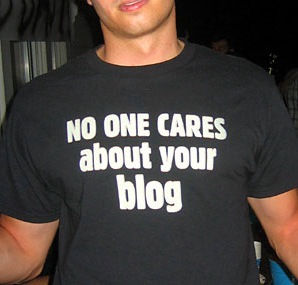Saturday, September 30
Wednesday, September 20
Me But Not Myself

I were standing on the street, 3 am, the light from the highway, made me warm inside heart.
Labels: Photo
Tuesday, September 19
The Day That Changed Everything Wasn't 9/11
By Ira Chernus
Yes, it changed everything -- not September 11, 2001, when the Twin Towers collapsed, but November 9, 1989, when the Berlin Wall fell and left the U.S. at sea, drifting without an enemy in a strange new world.
Through four decades of the Cold War, Americans had been able to feel reasonably united in their determination to fight evil. And everyone, even children, knew the name of the evildoers: "the commies." Within two years after the Wall fell, the Soviet Union had simply disappeared. In the U.S., nobody really knew how to fight evil now, or even who the evildoers were. The world's sole remaining superpower was "running out of demons," as Colin Powell complained.
Amid the great anguish of September 11, 2001, it was hard to sense the paradoxical but very real feeling of relief that flooded across the country. After a decade adrift with no foes to oppose, Americans could sink back into a comfortingly black-and-white world, neatly divided into the good guys and the bad guys, the innocent and the guilty. In the hands of the Bush administration, "terrorists," modest as their numbers might have been, turned out to be remarkably able stand-ins for a whole empire-plus of "commies." They became our all-purpose symbol for the evil that fills our waking nightmares.
Today the very word "terrorist" conjures up anxiety-ridden images worthy of the Cold War era -- images of an unpredictable world always threatening to spin out of control. As then, so now, sinister evil is said to lurk everywhere -- even right next door -- always ready to spring upon unsuspecting victims.
Historians, considering the last decades of our history, are well aware that millions of Americans didn't need the attacks of 9/11 to fear that their world was spinning out of control. As the Cold War waned, profound differences on "values" issues (previously largely kept under wraps) came out of the closet. Societal anxiety rose. Many wondered how long a nation could endure if it had no consensus on "moral matters" and no obvious authority figures to turn to. Many feared they would lose their moral anchor in an increasingly confusing and challenging world.
This was the real terror that the Bush administration played upon when the Twin Towers fell. It took no time at all for the President to be right on Manichaean message: "We've seen that evil is real." "It is enough to know that evil, like goodness, exists." He did not have to say the rest explicitly, because (with a sigh of relief and endless rites of ceremonial mourning) Americans understood it: Goodness exists here in the good old USA. How do we know? Because evil itself attacked us and we are so firmly committed to fighting it.
Such circular logic fed public discourse from the springs of a deeply buried unconscious longing for power, clarity, and innocence. Once again we could stand tall in the world, the dazzling hyperpower of hyperpowers. As long as we were fighting evil, we had to be the good guys. If we weren't so good, why would we be so determined to fight the supposedly new evil of global terrorism?
Of course, it worked the other way around, too: The only way to prove that we were good was by hunting out and fighting evil. If we were to keep on feeling certain that we were the good guys, a steady supply of bad guys was a necessity -- and the post-Cold War decade just hadn't done its job providing them. So it could easily seem more appealing to launch a generational Global War on Terror that would keep the "terrorists" around permanently. What better way to keep on proving our virtue than by combating and containing them forever?
The New Normalcy
The neoconservatives understand all this perfectly well -- and well before September 11, 2001. For years, they had dreamed of preserving American virtue (and American global dominance) by flaunting American military might. They just needed an ongoing series of excuses to do the flaunting. The attacks of 9/11 gave them their chance.
Dick Cheney, Donald Rumsfeld, and Condoleezza Rice (all products of the Cold War era) said it clearly in the weeks following the attack. Their new war would not be a straightforward World War II-style march to victory. It would be more like… well, the war they knew, the Cold War, with its endless string of conflicts, crises, containments, and battles in the frontier lands of what used to be called the Third World. And it would be forever.
As Cheney put it, "There's not going to be an end date when we're going to say, ‘There, it's all over with.'" And he classically summed things up this way: "Many of the steps we have now been forced to take will become permanent in American life. … I think of it as the new normalcy.'' The neocons were glad to see the war on terrorism revive memories of the days when -- they imagine -- we contained the commies, learned to stop worrying, and loved the bomb (despite all its terror).
It was a strange love that they remembered so fondly. Polls made it clear that we never really stopped worrying then -- and polls make it clear that we still haven't now. Now, as then, we just bury the terror ever deeper and console ourselves as best we can with the mercilessness of our enemies and the relative safety of our own neck of the woods.
A recent poll tells us that only 14% of Americans feel safer now than they did five years ago. Seventy-nine percent expect another attack on U.S. soil within the next year, and 60% think it's likely in the next few months. Four out of five say that "we will always have to live with the threat of terrorism," though only one in five admits to being "personally very concerned about an attack" in his or her own area. A Florida woman captured the prevailing mood when she told a reporter: "When I stop to think about it, I don't feel very safe. But then again, on a day-to-day basis, I feel fine." As Rep. Peter King, chair of the House Homeland Security Committee, put it: "It's like we live in two parallel existences."
Those words should sound awfully familiar to anyone who lived through the Cold War years. The war on terrorism has revived the Cold War mindset, in which we are all citizens of a national insecurity state. The terror of impending annihilation from a vast, conspiratorial, and evil enemy has again become the vague backdrop of everyday life. To assure ourselves of our absolute goodness, we must see the enemy as absolute evil; not a collection of human beings bent on harming us, but a network of monsters bent on -- and capable of -- destroying us utterly. In other words, Cheney's "new normalcy" is but a version of an older, deeper apocalyptic terror. Every loss -- of a diplomatic conflict or an economic tussle or a pair of skyscrapers -- is once again framed as a portent of looming doom for the nation. Any successful attack upon us, we are told, could bring down the curtain of Armageddon.
Here's the irony. Unlike the nuclear-armed Soviet Union in the Cold War years, terrorists cannot actually threaten to obliterate our country or destroy the planet. But each apocalyptic warning of war to the death by the Bush administration only hastens another kind of loss -- the loss of the American imperial power they so prize.
Cornered Empire?
Even if actual extinction doesn't threaten, when it seems to, a nation, like an animal, is tempted to fight back with no holds barred. That's the attitude Bush and the neocons have tried to inculcate since 9/11. It's the only attitude, they insist, that can save America's military might and moral fiber. Indeed, for hard-core neocons, the main point of their global-war-on-terror policies is to revive this very Cold War mentality.
Yet those policies have obviously backfired terribly. The war on terrorism was supposed to build a new American century -- a unipolar world in which the U.S. would reign supreme. But every day it looks more and more like the 21st century will be the multipolar century, with any number of powerful nations and regional groupings successfully challenging U.S. economic, diplomatic, and military preeminence.
Bush and his neocon advisors certainly don't bear all the blame for an American imperial decline. But their utter misreading of the nature of U.S. military power and their lack of interest in economic and diplomatic realities has certainly hastened along a process that, in some fashion, was bound to happen anyway.
The United States reached the peak of its power in the late 1940s. The meat-grinder of World War II had chewed up all the other great powers and their colonial empires, too. In the ensuing decades, as the others recovered and once-dominated nations like China and India broke free and gained traction, the world moved inevitably toward a multipolar future.
Cold war presidents from Truman to Reagan hastened the process by building up U.S. allies like Germany and Japan in order to stave off the evil empire. And they sometimes even heeded the call of those allies to refrain from using military force (or too much of it anyway), lest a global war be triggered. Empowering our allies, while keeping them militarily subservient, actually helped them grab a bigger slice of the global economic pie, encouraging the rise of multipolarism. Big mistake, the neocons declared as, after 9/11, they set the Bush administration on an aggressive course of unilateralism, aiming at their dream of a New-Rome-style unipolarism.
Looking back, it's easy to see what a big mistake they made -- even in their own terms. Their unilateralism and militarism accelerated to near warp speed the decline of U.S. power and influence around the world. Every military blow or threatened blow only multiplied American enemies; every shock-and-awe action only created more opposition, even from increasingly standoffish allies. In the years to come, for an economically weakened "last superpower," there will be more and more occasions, on more and more fronts, when the U.S. will meet its match and have to back down. None of these will spell doom for us. But in context of the national insecurity state, they're likely to be framed as apocalyptic defeats, harbingers of the end time itself, and, above all, good reason to fight back blindly with all our might.
This is the vicious circle from Hell. The Bush administration's aggressive policies weaken U.S. power. Then its officials try to frighten the public into supporting the very same aggressive policies. We were stuck in a similar cycle, only half-recognized, throughout the Cold War years, and there's no end in sight. So far, it looks like not much has changed at all since 9/11.
But we don't have to stay stuck. There's nothing inevitable about history. Some 160 years after the French Revolution, Chinese Prime Minister Zhou Enlai was asked how that event had changed the world. "It's too soon to tell," Zhou replied impishly. Five short years after 9/11, it's way too soon to tell if the attacks of that day actually "changed everything," or if they changed much of anything at all.
Already, there is a growing awareness that the Bush Global War on Terror is doing more harm than good. Even from the foreign policy elite we can hear (though still often faintly) voices saying it's time to call it off. For now, the talk is narrowly focused on our imperial well-being -- the weakening of U.S. power and interests around the world.
Perhaps, as losses mount, Americans will eventually see the more important truth: Simplistic moralism and a pervasive fear of apocalyptic disaster weaken our society here at home. They make every step toward positive change look like a looming danger and that plays right into the hands of conservatives who are dedicated to preventing the change we need so badly. If the failed war on terror eventually teaches us this lesson, 9/11 will turn out to be the day that did indeed change everything.
Ira Chernus is Professor of Religious Studies at the University of Colorado at Boulder. His latest book is Monsters To Destroy: The Neoconservative War on Terror and Sin. He can be contacted at chernus@colorado.edu
Yes, it changed everything -- not September 11, 2001, when the Twin Towers collapsed, but November 9, 1989, when the Berlin Wall fell and left the U.S. at sea, drifting without an enemy in a strange new world.
Through four decades of the Cold War, Americans had been able to feel reasonably united in their determination to fight evil. And everyone, even children, knew the name of the evildoers: "the commies." Within two years after the Wall fell, the Soviet Union had simply disappeared. In the U.S., nobody really knew how to fight evil now, or even who the evildoers were. The world's sole remaining superpower was "running out of demons," as Colin Powell complained.
Amid the great anguish of September 11, 2001, it was hard to sense the paradoxical but very real feeling of relief that flooded across the country. After a decade adrift with no foes to oppose, Americans could sink back into a comfortingly black-and-white world, neatly divided into the good guys and the bad guys, the innocent and the guilty. In the hands of the Bush administration, "terrorists," modest as their numbers might have been, turned out to be remarkably able stand-ins for a whole empire-plus of "commies." They became our all-purpose symbol for the evil that fills our waking nightmares.
Today the very word "terrorist" conjures up anxiety-ridden images worthy of the Cold War era -- images of an unpredictable world always threatening to spin out of control. As then, so now, sinister evil is said to lurk everywhere -- even right next door -- always ready to spring upon unsuspecting victims.
Historians, considering the last decades of our history, are well aware that millions of Americans didn't need the attacks of 9/11 to fear that their world was spinning out of control. As the Cold War waned, profound differences on "values" issues (previously largely kept under wraps) came out of the closet. Societal anxiety rose. Many wondered how long a nation could endure if it had no consensus on "moral matters" and no obvious authority figures to turn to. Many feared they would lose their moral anchor in an increasingly confusing and challenging world.
This was the real terror that the Bush administration played upon when the Twin Towers fell. It took no time at all for the President to be right on Manichaean message: "We've seen that evil is real." "It is enough to know that evil, like goodness, exists." He did not have to say the rest explicitly, because (with a sigh of relief and endless rites of ceremonial mourning) Americans understood it: Goodness exists here in the good old USA. How do we know? Because evil itself attacked us and we are so firmly committed to fighting it.
Such circular logic fed public discourse from the springs of a deeply buried unconscious longing for power, clarity, and innocence. Once again we could stand tall in the world, the dazzling hyperpower of hyperpowers. As long as we were fighting evil, we had to be the good guys. If we weren't so good, why would we be so determined to fight the supposedly new evil of global terrorism?
Of course, it worked the other way around, too: The only way to prove that we were good was by hunting out and fighting evil. If we were to keep on feeling certain that we were the good guys, a steady supply of bad guys was a necessity -- and the post-Cold War decade just hadn't done its job providing them. So it could easily seem more appealing to launch a generational Global War on Terror that would keep the "terrorists" around permanently. What better way to keep on proving our virtue than by combating and containing them forever?
The New Normalcy
The neoconservatives understand all this perfectly well -- and well before September 11, 2001. For years, they had dreamed of preserving American virtue (and American global dominance) by flaunting American military might. They just needed an ongoing series of excuses to do the flaunting. The attacks of 9/11 gave them their chance.
Dick Cheney, Donald Rumsfeld, and Condoleezza Rice (all products of the Cold War era) said it clearly in the weeks following the attack. Their new war would not be a straightforward World War II-style march to victory. It would be more like… well, the war they knew, the Cold War, with its endless string of conflicts, crises, containments, and battles in the frontier lands of what used to be called the Third World. And it would be forever.
As Cheney put it, "There's not going to be an end date when we're going to say, ‘There, it's all over with.'" And he classically summed things up this way: "Many of the steps we have now been forced to take will become permanent in American life. … I think of it as the new normalcy.'' The neocons were glad to see the war on terrorism revive memories of the days when -- they imagine -- we contained the commies, learned to stop worrying, and loved the bomb (despite all its terror).
It was a strange love that they remembered so fondly. Polls made it clear that we never really stopped worrying then -- and polls make it clear that we still haven't now. Now, as then, we just bury the terror ever deeper and console ourselves as best we can with the mercilessness of our enemies and the relative safety of our own neck of the woods.
A recent poll tells us that only 14% of Americans feel safer now than they did five years ago. Seventy-nine percent expect another attack on U.S. soil within the next year, and 60% think it's likely in the next few months. Four out of five say that "we will always have to live with the threat of terrorism," though only one in five admits to being "personally very concerned about an attack" in his or her own area. A Florida woman captured the prevailing mood when she told a reporter: "When I stop to think about it, I don't feel very safe. But then again, on a day-to-day basis, I feel fine." As Rep. Peter King, chair of the House Homeland Security Committee, put it: "It's like we live in two parallel existences."
Those words should sound awfully familiar to anyone who lived through the Cold War years. The war on terrorism has revived the Cold War mindset, in which we are all citizens of a national insecurity state. The terror of impending annihilation from a vast, conspiratorial, and evil enemy has again become the vague backdrop of everyday life. To assure ourselves of our absolute goodness, we must see the enemy as absolute evil; not a collection of human beings bent on harming us, but a network of monsters bent on -- and capable of -- destroying us utterly. In other words, Cheney's "new normalcy" is but a version of an older, deeper apocalyptic terror. Every loss -- of a diplomatic conflict or an economic tussle or a pair of skyscrapers -- is once again framed as a portent of looming doom for the nation. Any successful attack upon us, we are told, could bring down the curtain of Armageddon.
Here's the irony. Unlike the nuclear-armed Soviet Union in the Cold War years, terrorists cannot actually threaten to obliterate our country or destroy the planet. But each apocalyptic warning of war to the death by the Bush administration only hastens another kind of loss -- the loss of the American imperial power they so prize.
Cornered Empire?
Even if actual extinction doesn't threaten, when it seems to, a nation, like an animal, is tempted to fight back with no holds barred. That's the attitude Bush and the neocons have tried to inculcate since 9/11. It's the only attitude, they insist, that can save America's military might and moral fiber. Indeed, for hard-core neocons, the main point of their global-war-on-terror policies is to revive this very Cold War mentality.
Yet those policies have obviously backfired terribly. The war on terrorism was supposed to build a new American century -- a unipolar world in which the U.S. would reign supreme. But every day it looks more and more like the 21st century will be the multipolar century, with any number of powerful nations and regional groupings successfully challenging U.S. economic, diplomatic, and military preeminence.
Bush and his neocon advisors certainly don't bear all the blame for an American imperial decline. But their utter misreading of the nature of U.S. military power and their lack of interest in economic and diplomatic realities has certainly hastened along a process that, in some fashion, was bound to happen anyway.
The United States reached the peak of its power in the late 1940s. The meat-grinder of World War II had chewed up all the other great powers and their colonial empires, too. In the ensuing decades, as the others recovered and once-dominated nations like China and India broke free and gained traction, the world moved inevitably toward a multipolar future.
Cold war presidents from Truman to Reagan hastened the process by building up U.S. allies like Germany and Japan in order to stave off the evil empire. And they sometimes even heeded the call of those allies to refrain from using military force (or too much of it anyway), lest a global war be triggered. Empowering our allies, while keeping them militarily subservient, actually helped them grab a bigger slice of the global economic pie, encouraging the rise of multipolarism. Big mistake, the neocons declared as, after 9/11, they set the Bush administration on an aggressive course of unilateralism, aiming at their dream of a New-Rome-style unipolarism.
Looking back, it's easy to see what a big mistake they made -- even in their own terms. Their unilateralism and militarism accelerated to near warp speed the decline of U.S. power and influence around the world. Every military blow or threatened blow only multiplied American enemies; every shock-and-awe action only created more opposition, even from increasingly standoffish allies. In the years to come, for an economically weakened "last superpower," there will be more and more occasions, on more and more fronts, when the U.S. will meet its match and have to back down. None of these will spell doom for us. But in context of the national insecurity state, they're likely to be framed as apocalyptic defeats, harbingers of the end time itself, and, above all, good reason to fight back blindly with all our might.
This is the vicious circle from Hell. The Bush administration's aggressive policies weaken U.S. power. Then its officials try to frighten the public into supporting the very same aggressive policies. We were stuck in a similar cycle, only half-recognized, throughout the Cold War years, and there's no end in sight. So far, it looks like not much has changed at all since 9/11.
But we don't have to stay stuck. There's nothing inevitable about history. Some 160 years after the French Revolution, Chinese Prime Minister Zhou Enlai was asked how that event had changed the world. "It's too soon to tell," Zhou replied impishly. Five short years after 9/11, it's way too soon to tell if the attacks of that day actually "changed everything," or if they changed much of anything at all.
Already, there is a growing awareness that the Bush Global War on Terror is doing more harm than good. Even from the foreign policy elite we can hear (though still often faintly) voices saying it's time to call it off. For now, the talk is narrowly focused on our imperial well-being -- the weakening of U.S. power and interests around the world.
Perhaps, as losses mount, Americans will eventually see the more important truth: Simplistic moralism and a pervasive fear of apocalyptic disaster weaken our society here at home. They make every step toward positive change look like a looming danger and that plays right into the hands of conservatives who are dedicated to preventing the change we need so badly. If the failed war on terror eventually teaches us this lesson, 9/11 will turn out to be the day that did indeed change everything.
Ira Chernus is Professor of Religious Studies at the University of Colorado at Boulder. His latest book is Monsters To Destroy: The Neoconservative War on Terror and Sin. He can be contacted at chernus@colorado.edu
Labels: Article
Saturday, September 16
Top 500 of Greatest Albums

1. Sgt. Pepper's Lonely Hearts Club Band, The Beatles
2. Pet Sounds, The Beach Boys
3. Revolver, The Beatles
4. Highway 61 Revisited, Bob Dylan
5. Rubber Soul, The Beatles
6. What's Going On, Marvin Gaye
7. Exile on Main Street, The Rolling Stones
8. London Calling, The Clash
9. Blonde on Blonde, Bob Dylan
10. The Beatles ("The White Album"), The Beatles
See Top 500 Here
Labels: Music
Friday, September 15
Wednesday, September 13
It’s Showtime And All About iPod
 Sweet. This mid-night(Beijing Time), Apple just announced new brushed metal colored iPod minis. With the tiny size and especially the Nike Plus running software.... this will pretty much be the perfect mp3 player for me. Especially since it's no longer going to be so fragile.
Sweet. This mid-night(Beijing Time), Apple just announced new brushed metal colored iPod minis. With the tiny size and especially the Nike Plus running software.... this will pretty much be the perfect mp3 player for me. Especially since it's no longer going to be so fragile.As far as storage and pricing goes, the 2GB ($149) comes in silver, the 4GB ($199) in silver, pink, green, blue, and 8GB ($249) is only available in black.
 Otherwise, Shuffle turns to a really adorable one,please let me "wow, How apple can make the magic done!"
Otherwise, Shuffle turns to a really adorable one,please let me "wow, How apple can make the magic done!"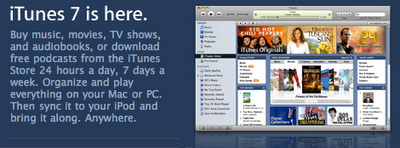
New iTunes 7, no longer music store anymore, it sells movies. $9.99 each one, $12.99 for the new movie per order, $14.99 for the newest movie without per order.
And iTV(not the final name) will release next year.
Hey Apple! What is the next toy, can take money away from my wallet?
Tuesday, September 12
Monday, September 11
Renaissance




 In 2054, Paris is a labyrinth where all movement is monitored and recorded. Casting a shadow over everything is the city’s largest company, Avalon, which insinuates itself into every aspect of contemporary life to sell its primary export - youth and beauty. In this world of stark contrasts and rigid laws the populace is kept in line and accounted for.
In 2054, Paris is a labyrinth where all movement is monitored and recorded. Casting a shadow over everything is the city’s largest company, Avalon, which insinuates itself into every aspect of contemporary life to sell its primary export - youth and beauty. In this world of stark contrasts and rigid laws the populace is kept in line and accounted for.The Chronology of The Attacks of The September 11
Here the chronology of the attacks which have occurred on September 11, 2001 in the United States:
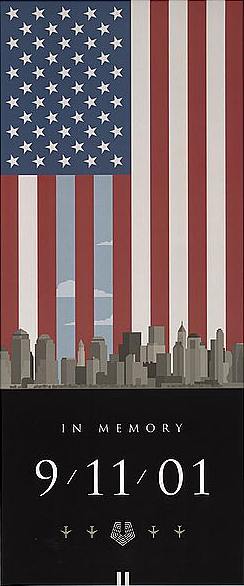
-7h59 (11h59 GMT): a Boeing 767 of American Airlines (flight 11), with 92 people on board, takes off of the international airport Logan of Boston bound for Los Angeles.
-8h14 (12h14 GMT): a Boeing 767 of United Airlines (flight 175), with 65 people on board, leaves Boston for Los Angeles.
-8h21 (12h21 GMT): a Boeing 757 of American Airlines (flight 77), with 64 people on board, takes off of the airport Washington Dulles for Los Angeles.
-8h40 (12h40 GMT): the Administration of the Civil aviation (FAA) informs the North-eastern sector of the NORAD (air defense) of a possible diversion of flight 11.
-8h41 (12h41 GMT): a Boeing 757 of United Airlines (flight 93), with 44 people on board, takes off Newark (New Jersey) bound for San Francisco.
-8h43 (12h43 GMT): the FAA informs the NORAD of a possible diversion of flight 175.
-8h46 (12h46 GMT): flight 11 of American Airlines is crushed on the northern lathe of World Trade Center (WTC).
-9h03 (13h03 GMT): flight 175 of United Airlines is crushed on the southern lathe of World Trade Center.
-9h08 (13h08 GMT): the FAA prohibits the takeoff of all the airliners going to New York or passing above.
-9h24 (13h24): the FAA informs the NORAD of a possible diversion of flight 77.
-9h26 (13h26 GMT): the Administration of the civil aviation (FAA) suspends all the flights above the United States. The international flights in progress are diverted towards Canada and other nearby countries.
-9h31 (13h31 GMT): president George W. Bush estimates since Sarasota (Florida) that it is “apparently about a terrorist attack against our country”.
-9h40 (13h40 GMT): flight 77 is crushed on the Pentagon. Stop of quotations in Wall Street.
-9h48 (13h48 GMT): Capitole and the western wing of the White House are evacuated.
-9h58 (13h58 GMT): an operator of a center of help in Pennsylvania receives a call of a passenger of shouting flight 93: “We are victims of a diversion! We are victims of a diversion!”
-9h59 (13h50 GMT): the southern tower of World Trade Center breaks down.
-10h07 (14h07 GMT): flight 93 is crushed with 130km in the south-east of Pittsburgh.
-10h28 (14h28 GMT): the northern tower of World Trade Center breaks down.
-10h-11h30 (14h-15h30 GMT): the governmental buildings of the country are evacuated, of which Capitole and the White House. The firm seat of the United Nations. The SEC decides the closing of all the American financial markets for the remainder of the day.
-11h (15h GMT): the mayor of New York Rudolph Giuliani asks for the evacuation of the southern part of Manhattan.
-11h40 (15h40 GMT): Mr. Bush leaves Florida for the air base of Barksdale (Louisiana), after having decided not to return immediately to Washington. He will go then to 15h07 (19h07 GMT) on the basis of air Offutt (Nebraska)
.
-14h51 (18h51 GMT): US Navy deploys buildings of war off New York and of Washington.
-19h (23h GMT): president Bush arrives at the White House.
-20h30 (00h30): Mr. Bush, who applies to the nation, affirms that “thousands of lives were suddenly stopped” because of these attacks and to add that “the terrorist attacks can shake the foundations of our larger buildings, but they cannot shake the foundations of America”.
It was 5 years ago…And we will never forget those victims.
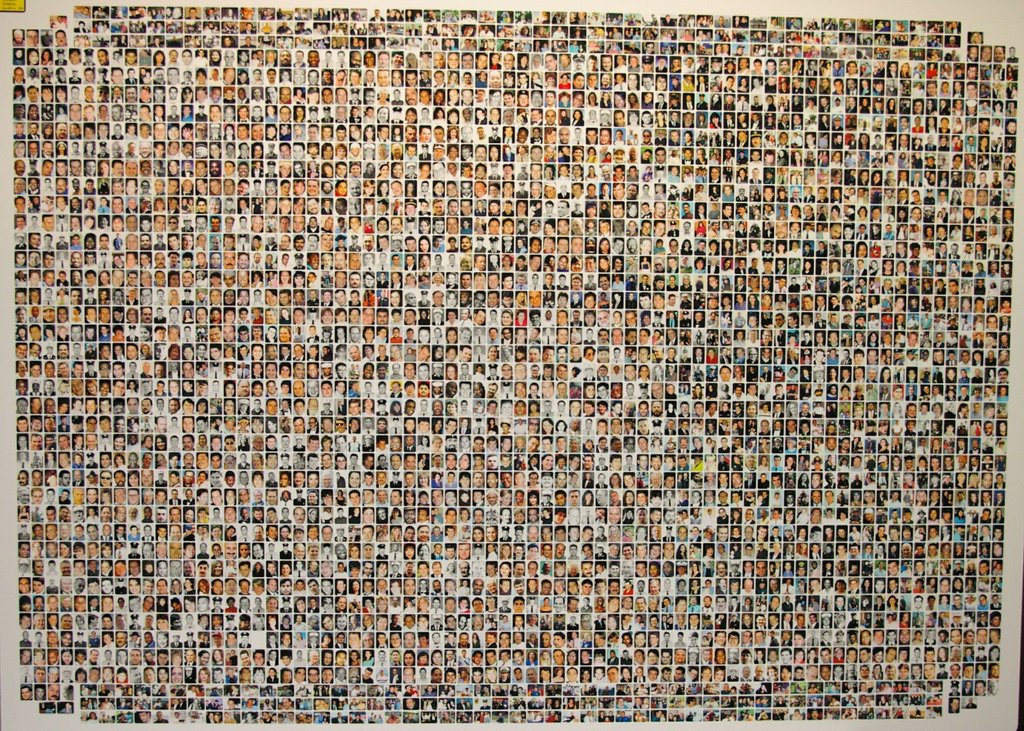

-7h59 (11h59 GMT): a Boeing 767 of American Airlines (flight 11), with 92 people on board, takes off of the international airport Logan of Boston bound for Los Angeles.
-8h14 (12h14 GMT): a Boeing 767 of United Airlines (flight 175), with 65 people on board, leaves Boston for Los Angeles.
-8h21 (12h21 GMT): a Boeing 757 of American Airlines (flight 77), with 64 people on board, takes off of the airport Washington Dulles for Los Angeles.
-8h40 (12h40 GMT): the Administration of the Civil aviation (FAA) informs the North-eastern sector of the NORAD (air defense) of a possible diversion of flight 11.
-8h41 (12h41 GMT): a Boeing 757 of United Airlines (flight 93), with 44 people on board, takes off Newark (New Jersey) bound for San Francisco.
-8h43 (12h43 GMT): the FAA informs the NORAD of a possible diversion of flight 175.
-8h46 (12h46 GMT): flight 11 of American Airlines is crushed on the northern lathe of World Trade Center (WTC).
-9h03 (13h03 GMT): flight 175 of United Airlines is crushed on the southern lathe of World Trade Center.
-9h08 (13h08 GMT): the FAA prohibits the takeoff of all the airliners going to New York or passing above.
-9h24 (13h24): the FAA informs the NORAD of a possible diversion of flight 77.
-9h26 (13h26 GMT): the Administration of the civil aviation (FAA) suspends all the flights above the United States. The international flights in progress are diverted towards Canada and other nearby countries.
-9h31 (13h31 GMT): president George W. Bush estimates since Sarasota (Florida) that it is “apparently about a terrorist attack against our country”.
-9h40 (13h40 GMT): flight 77 is crushed on the Pentagon. Stop of quotations in Wall Street.
-9h48 (13h48 GMT): Capitole and the western wing of the White House are evacuated.
-9h58 (13h58 GMT): an operator of a center of help in Pennsylvania receives a call of a passenger of shouting flight 93: “We are victims of a diversion! We are victims of a diversion!”
-9h59 (13h50 GMT): the southern tower of World Trade Center breaks down.
-10h07 (14h07 GMT): flight 93 is crushed with 130km in the south-east of Pittsburgh.
-10h28 (14h28 GMT): the northern tower of World Trade Center breaks down.
-10h-11h30 (14h-15h30 GMT): the governmental buildings of the country are evacuated, of which Capitole and the White House. The firm seat of the United Nations. The SEC decides the closing of all the American financial markets for the remainder of the day.
-11h (15h GMT): the mayor of New York Rudolph Giuliani asks for the evacuation of the southern part of Manhattan.
-11h40 (15h40 GMT): Mr. Bush leaves Florida for the air base of Barksdale (Louisiana), after having decided not to return immediately to Washington. He will go then to 15h07 (19h07 GMT) on the basis of air Offutt (Nebraska)
.
-14h51 (18h51 GMT): US Navy deploys buildings of war off New York and of Washington.
-19h (23h GMT): president Bush arrives at the White House.
-20h30 (00h30): Mr. Bush, who applies to the nation, affirms that “thousands of lives were suddenly stopped” because of these attacks and to add that “the terrorist attacks can shake the foundations of our larger buildings, but they cannot shake the foundations of America”.
It was 5 years ago…And we will never forget those victims.

Saturday, September 9
Moby Slipping Away (Crier la vie)

Listen to an extract of “SLIPPING AWAY” (Crier la vie)
Moby & Mylène Farmer
Listen : Here
SLIPPING AWAY (Crier la vie)
All that we needed was right
Les ombres ce soir nous menacent
Open to everything happy and sad
Seeing the good même si tout va si mal
Voir le soleil quand la nuit nous accable
Au bout d'un jour croire aux Dieux, croire aux fables
Focus on everything better today
Crier la vie quand tout autour se tait
Hold on people that slipping away
Hold on to this while it's slipping away
All that we needed tonight
Are people who love us and like
Je sais les douleurs et les doutes
Et partir est ce qu'on redoute
Aussi...
Open to everything happy and sad
Seeing the good même si tout va si mal
Voir le soleil quand la nuit nous accable
Au bout d'un jour croire aux Dieux, croire aux fables
Focus on everything better today
Crier la vie quand tout autour se tait
Hold on people that slipping away
Hold on to this while it's slipping away
So long...
Mais l'ombre...
Open to everything happy and sad
Seeing the good même si tout va si mal
Voir le soleil quand la nuit nous accable
Au bout d'un jour croire aux Dieux, croire aux fables
Focus on everything better today
Crier la vie quand tout autour se tait
Hold on people that slipping away
Hold on to this while it's slipping away
French adaptation: M.F
Friday, September 8
Eclipse of The Moon
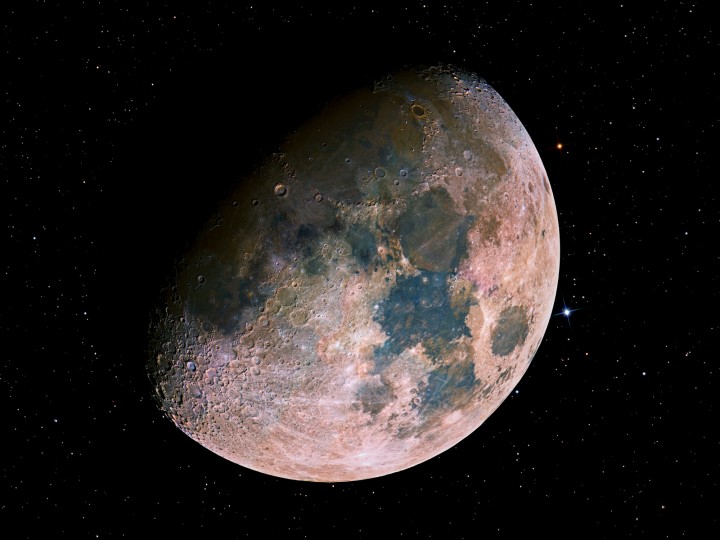

Yesterday and today, the moon will be the biggest and most brilliant and closest during the year.
Took this picture yesterday, My N80 is not so good to take the skyscoper picture. Speaking of which...
A partial eclipse of the Moon will be visible from Europe, Africa, Asia, and Australia tonight!
(Best Daily Astronomy Picture
Thursday, September 7
Tuesday, September 5
Dies Doing What He Loved
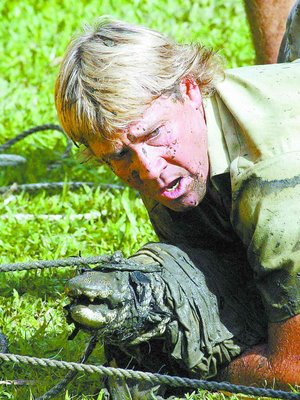

Daredevil Irwin, aka "The Crocodile Hunter", most famous Australian died at Sept. 4 yesterday. I was shocked when i read this.
He was one of the legend in my teenages. I saw a lot his programs at Discovery Channel. Brave, fearless, strong, witness...But i think he must be happy because he was doing what he loved until the end of life.
Getting A New Toy



What makes me excited? Getting a new toy to play with. A shiny one.
Love me a phone with built-in WiFi. I hate paying for data... and here in China, even there are some affordable all-you-can-eat data plans but I really hate the speed of it. When I opened the great web browser for the first time, I found 6 WiFi networks available to use for Internet connectivity. Gotta love that. Being able to pretty easily jump on a wireless network anywhere downtown, and home. It's almost like free mobile broadband. How nice would this be while out at coffee or waiting at an airport.
The camera technology is great, 3 megapixel camera with 20 times zoom. But it's not good as my imagined before. A little disappoint. But good news is I will lunch lots of pictures maybe vlog later in here.
The music player is great, as but it doesn't have forward and backward function, that's not good enough! But with 2 Gigabyte miniSD card capacity, N80 wins a little back on it.
The screen is gorgeous. 26'000 color, 352 x 416 pixels screen, 4 times than N70. And a funny stuff is when somebody calling N80 can speak the name of he/she, a little dumb, but what I called funny!
Speaking of which...It's just 1 day since we been together. That will be a long story later.
More pictures here.
Spec. Info
Sunday, September 3
How To Get Laid On Google

A google based "How to get laid" course. Including Gmail、Adsense、Alerts and so on.
Not valid in China yet, but who knows not in future!
Sound of Light
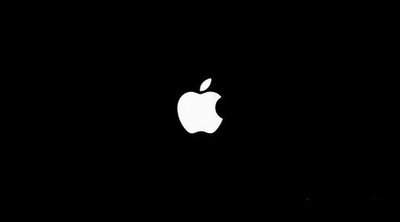
Made by Takagi Masakatsu, a local visual artist and musician based on Kyoto, to show you how MAC can bring you the imagination and creativity.
To see more Takagi's work here
Saturday, September 2
Shanghai Sex Blog Writer Hoax

CHINESE INTERWEB users are miffed about a blog apparently penned by a British teacher in which he recounts his sexual exploits among Shanghai women.
The English-language bog, called "Sex and Shanghai" has been shut down because it has sparked online vigilante behavior from Chinese males who were indignant at the content.
Apparently written by a bloke called Chinabounder, the bog has been subjected to attack by no less than Zhang Jiehai, a professor of psychology at the Shanghai Academy of Social Sciences. Zhang says on his own Chinese language site "we need to find this foreign filth and kick him out of China." Of course xenophobia and obsession with other people's sex lives does not happen to shrinks does it?
Other readers of Zhang’s bog called for Chinabounder to be decapitated along with the birds who slept with him, that sounds like a term paper on the causes of psychopathic murder if ever I saw one.
Ironically, the bog is a hoax. Chinabounder was written by a British man, an Australian woman, two Chinese men and a Japanese woman who for some reason have never walked into a pub.
The authors have decided to close the bog down because they are frightened for the safety of expatriates in Shanghai.
(Source)
You may also interest the previous post:Western Scoundrel in Shanghai! Now Hiding?

